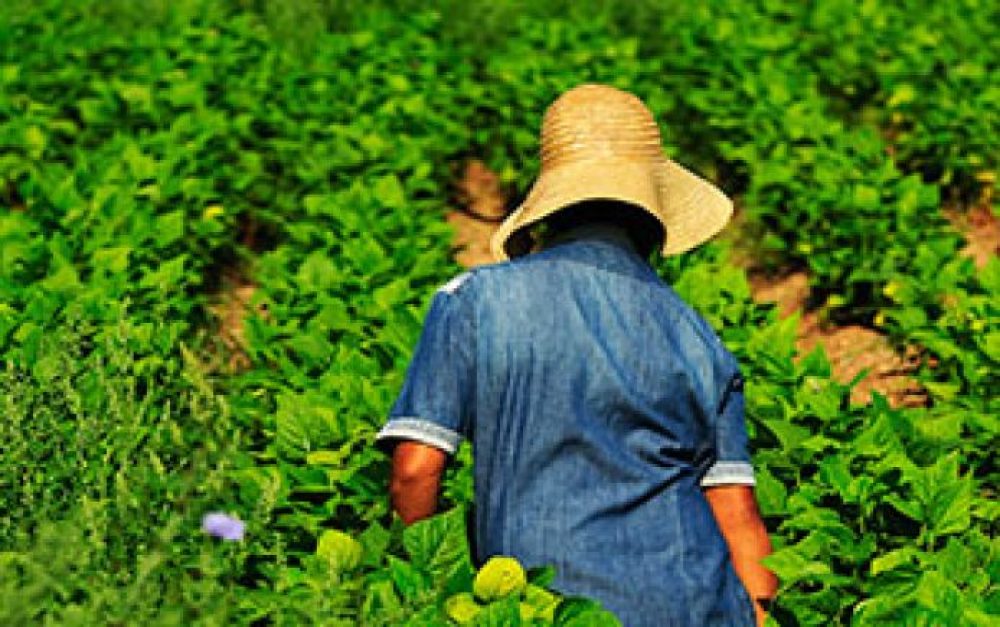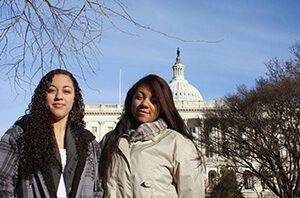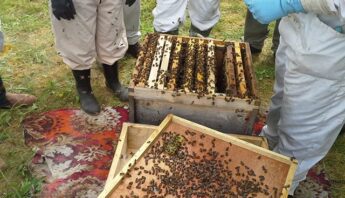EPA recently fined Bayer CropSciences $53,000 for endangering the lives of farmworkers with pesticide exposure in their Puerto Rican research and nursery operations. While this is a tiny drop in Bayer's multi-million dollar budget, we do take it as an encouraging sign.
The good news: When rules are enforced — in this case, the federal Worker Protection Standards (WPS) — employers are held accountable for protecting workers from exposure to hazardous pesticides. The less good news: Enforcement actions like this one are all too rare, and the WPS itself is old, inadequate and in serious need of an upgrade.
But there's more good news. That upgrade is finally happening, and we’re working with partners around the country to make sure the revised law does right by the workers it’s designed to protect. In the Puerto Rico case, Bayer CropScience failed to comply with several requirements of the existing WPS. Pesticide use did not follow label requirements, nor did the employer provide ample water, soap and towels for routine washing or an emergency decontamination area for workers.
Thank you, Bayer, for helping us make the case that a strong WPS is important. Now we're asking people around the country to help us send a message to policymakers that the 1995 rules must be strengthened. Now.
Time to improve farmworker protections
This news couldn’t come at a more appropriate time. After 13 years of promises, EPA has finally submitted proposed WPS improvements to the White House’s Office of Budget Management (OMB). OMB has until January 23 to provide its feedback.
With U.S. farmworkers continuing to suffer 39 times the rate of pesticide poisonings compared to workers in all other industries combined, the WPS clearly needs both more focused enforcement and serious improvement.
So PAN and our partners are working hard to build public support for better protections for the nation’s nearly two million farmworkers. We’re also working to delivering that message directly to OMB by highlighting several distinct voices in support of improving the WPS — from health care professionals who have first-hand knowledge of the impacts of pesticides on farmworker families, to farmworkers themselves who have real, hard stories to tell.
Please join the efforts of our Safer Farmworkers, Food & Families Campaign to win these sorely needed improvements in the rules protecting U.S. farmworkers and their families.
Bayer: Guilty on many counts
It’s poetic justice of a sort that Bayer CropScience — a key nemesis in several PAN battles — is the target of this EPA enforcement effort. Why battle Bayer?
- It’s one of the Big 6 seed and pesticide corporations fighting to keep bee-killing neonicotinoid pesticides on the market, spending buckets of money to try to prove that these pesticides aren’t largely responsible for massive bee kills that threaten agricultural productivity around the globe.
- The same Big 6 have been formally accused of violating human rights for perpetuating both health harms of pesticides and associated economic and livelihood harms resulting from their aggressive promotion of their products worldwide, and collective domination of global pesticide and seed markets.
- Bayer fought long and hard to continue use of the highly hazardous pesticide endosulfan — one of its flagship products — as one country after another agreed to phase out its use. All parties to the international Stockholm Convention are now committed to this phaseout, and through the treaty recognize and promote ecosystem-based approaches to crop management as the most viable alternative.
Farmworkers to bees, PAN builds alliances
I love it when the links among different branches of our work become so clear.
Bayer is the producer of many of the highly hazardous pesticides that we are working to ban with partners around the globe — from endosulfan to bee-killing neonicotinoids. And Bayer is fined for violation of the rules designed to protect workers from the hazards of using the very pesticides that Bayer (and others) produce and repeatedly and adamantly claim can be used safely.
But, as we've seen in the Puerto Rican case, the "safe use" of these products is nothing of the kind.
Here’s to fighting for more wins that will force Bayer and all the Big 6 to wake up and smell the coffee. They can run — very fast, and very far with lots of money — but they can’t hide. Farmworkers will get the protections they deserve and so urgently need.








